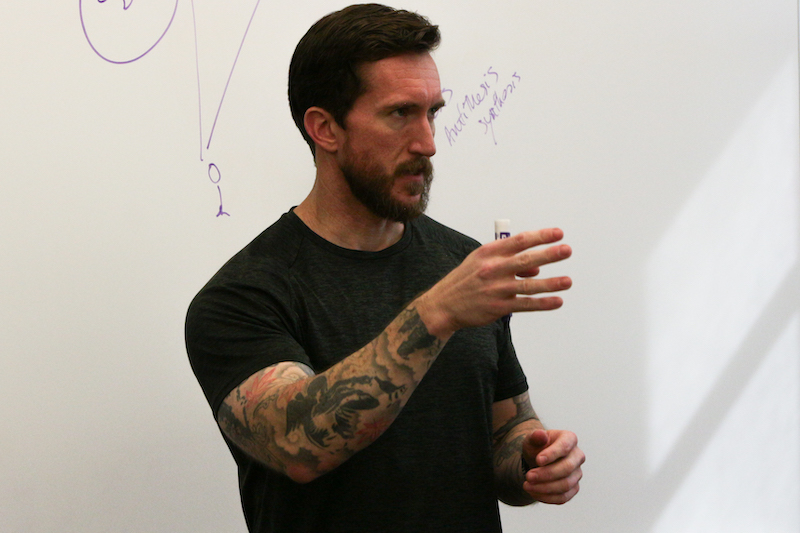A peace and conflicts minor in the political science program is a year underway at Texas A&M University-San Antonio.
Thomas Beaumont, associate professor of political science, teaches two classes in the minor, Foundations of Peace and Conflict Studies and Theories of International Relations, to explain the world of conflict and ways to approach peace.
With A&M-San Antonio having around 1,250 military-connected students, faculty considered that while developing the minor.Classes like War and Society, Conflict and Genocide, Terrorism and Political Violence can pique their interest.
Faculty in the political science program also realized the natural curiosity of majors, asking questions about current conflicts and wanting to know the purpose, the history and the impact. Factoring the inquisitiveness of their students, faculty used this as another gage to create the minor.
“A lot of students want to know, ‘Well, why is this what we’re doing?’ and ‘Why is this how we’re handling things?’” Beaumont said. “‘What caused this war?’ or ‘How did the war escalate this way?’”
During the development of peace and conflicts studies, the students at A&M-San Antonio were not the only ones considered. Northwest Vista College offers lower-level courses for this minor and when those students transfer over to A&M-San Antonio, they have the option for upper-level courses in the peace and conflicts minor.
After a little over a year in existence, the courses offered through the minor, only 71 students have been enrolled. Faculty notice the minor hasn’t picked up popularity as some other minors in the department.
“I will say, it’s kind of been a slow roll, in the time this minor has come online,” Professor Chair of Criminology and Political Science Durant Frantzen said. “Legal studies, on the other hand, has probably been the hottest minor.”
Though enrollment numbers have been slow-moving to start, Beaumont sees word of mouth being their best asset in recruiting more students.
“What we’re seeing is the more students that’ve taken the courses and as word gets out, enrollment in those courses is growing,” Beaumont said. “As with most things, it’s just word-of-mouth.”
SUBHEAD: Poli-sci promotes growth with events, speakers, new classes
The political science program will still use other tactics to increase the number of students joining the program, such as hosting events and booking guest speakers.
The program will host Albert Shihyi Chiu, professor of political science at Tunghai University and visiting scholar in International Studies at the University of St. Thomas at 12:30 p.m. Nov. 7 in CAB 333. Chiu will discuss Ukraine, Taiwan and their circumstances under the Trump Administration.
Booking guest speakers like Chiu to discuss content relating to the minor can spark interest for students not already enrolled in peace and conflicts.
Being part of the peace and conflicts minor and going through the courses of learning history, current events and taking a communication class provides students the ability to critically think and enhance communication skills. Acquiring these skills can make graduates valuable for a range of careers.
“It develops critical thinking; it really focuses on effective communication skills as well, ” Beaumont said. “So, what we’re doing as this sort of avenue, this subset of political science, is sort of developing that critical thinking skillset that can really be applied to a lot of different places. You can work in the diplomatic services, you can work for the State Department, you can work for all sorts of local governing bodies as well.”
In spring 2026, the minor will continue to grow as the program will introduce a few more courses: Terrorism and Political Science and Politics of Counterinsurgency.

